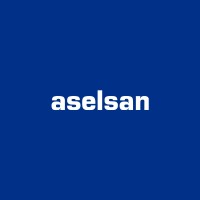
Crowley Fabrication & Machining Co. Inc.
Strong
Crowley Fabricating & Machining Co., Inc. Endicott New York, United States.



Strong
Crowley Fabricating & Machining Co., Inc. Endicott New York, United States.

Strong
ASELSAN is a company of Turkish Armed Forces Foundation, established in 1975 in order to meet the communication needs of the Turkish Armed Forces by national means. Currently 74,20% of the shares are owned by the Foundation whereas the remaining 25,8% runs in İstanbul Borsa stock market. ASELSAN is the largest defense electronics company of Turkey whose capability/product portfolio comprises communication and information technologies, radar and electronic warfare, electro-optics, avionics, unmanned systems, land, naval and weapon systems, air defence and missile systems, command and control systems, transportation, security, traffic, automation and medical systems. Today ASELSAN has become an indigenous products exporting company, investing in international markets through various cooperation models with local partners and listed as one of the top 100 defence companies of the world (Defense News Top 100).
Security & Compliance Standards Overview
No incidents recorded for Crowley Fabrication & Machining Co. Inc. in 2025.
Aselsan has 212.5% more incidents than the average of same-industry companies with at least one recorded incident.
Crowley Fabrication & Machining Co. Inc. cyber incidents detection timeline including parent company and subsidiaries
Aselsan cyber incidents detection timeline including parent company and subsidiaries
Last 3 Security & Risk Events by Company
Quadient DS-700 iQ devices through 2025-09-30 might have a race condition during the quick clicking of (in order) the Question Mark button, the Help Button, the About button, and the Help Button, leading to a transition out of kiosk mode into local administrative access. NOTE: the reporter indicates that the "behavior was observed sporadically" during "limited time on the client site," making it not "possible to gain more information about the specific kiosk mode crashing issue," and the only conclusion was "there appears to be some form of race condition." Accordingly, there can be doubt that a reproducible cybersecurity vulnerability was identified; sporadic software crashes can also be caused by a hardware fault on a single device (for example, transient RAM errors). The reporter also describes a variety of other issues, including initial access via USB because of the absence of a "lock-pick resistant locking solution for the External Controller PC cabinet," which is not a cybersecurity vulnerability (section 4.1.5 of the CNA Operational Rules). Finally, it is unclear whether the device or OS configuration was inappropriate, given that the risks are typically limited to insider threats within the mail operations room of a large company.
Argo CD is a declarative, GitOps continuous delivery tool for Kubernetes. Versions between 2.1.0 and 2.14.19, 3.2.0-rc1, 3.1.0-rc1 through 3.1.7, and 3.0.0-rc1 through 3.0.18 contain a race condition in the repository credentials handler that can cause the Argo CD server to panic and crash when concurrent operations are performed on the same repository URL. The vulnerability is located in numerous repository related handlers in the util/db/repository_secrets.go file. A valid API token with repositories resource permissions (create, update, or delete actions) is required to trigger the race condition. This vulnerability causes the entire Argo CD server to crash and become unavailable. Attackers can repeatedly and continuously trigger the race condition to maintain a denial-of-service state, disrupting all GitOps operations. This issue is fixed in versions 2.14.20, 3.2.0-rc2, 3.1.8 and 3.0.19.
Stored cross-site scripting (XSS) vulnerabilities in Web Content translation in Liferay Portal 7.4.0 through 7.4.3.112, and older unsupported versions, and Liferay DXP 2023.Q4.0 through 2023.Q4.8, 2023.Q3.1 through 2023.Q3.10, 7.4 GA through update 92, and older unsupported versions allow remote attackers to inject arbitrary web script or HTML via any rich text field in a web content article.
Keysight Ixia Vision has an issue with hardcoded cryptographic material which may allow an attacker to intercept or decrypt payloads sent to the device via API calls or user authentication if the end user does not replace the TLS certificate that shipped with the device. Remediation is available in Version 6.9.1, released on September 23, 2025.
An Insecure Direct Object Reference (IDOR) in the /dashboard/notes endpoint of Syaqui Collegetivity v1.0.0 allows attackers to impersonate other users and perform arbitrary operations via a crafted POST request.